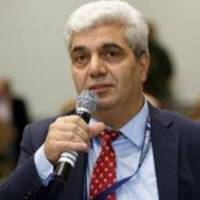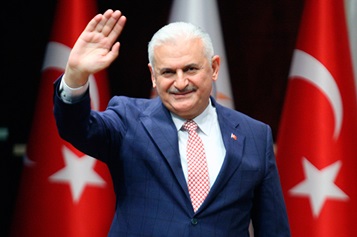Ukrainian Gas Transit: Still Vital for Russian Gas Supplies to Europe  By Jack Sharples, Research Fellow of the Oxford Institute of Energy Studies and EGF Associate Researcher on the External Dimensions of Russian Gas By Jack Sharples, Research Fellow of the Oxford Institute of Energy Studies and EGF Associate Researcher on the External Dimensions of Russian Gas
With European gas import demand having risen substantially since 2014, Gazprom has dramatically increased its sales on the European market. In Q1 2018, Gazprom reported record daily gas exports to Europe in late February and early March. This Comment addresses the question of how those volumes were delivered to the market, and the extent to which the infrastructure for delivery of those volumes was used, highlighting that, in times of peak European gas import demand, full utilisation of the Nord Stream and Yamal-Europe pipelines left Ukraine as the only transit route with spare capacity. READ MORE
Endless Endgame: Whither Russia-West Confrontation?  By Elkhan Nuriyev, BREC Global Energy Associate, EGF Affiliated Expert By Elkhan Nuriyev, BREC Global Energy Associate, EGF Affiliated Expert
The world’s future is currently endangered by numerous fundamental threats, yet Western democracies fear only one – Vladimir Putin. On all geopolitical fronts of the emerging multipolar world the Russian President has smartly backlashed against all collective challenges mounted by the West. Small wonder the West’s incessant fear of Russia’s military power has made Putin the world’s most powerful man. What is currently happening in West-Russia relations is not a new Cold War; it is not even a renewed East-West divide. READ MORE
Russian–Turkish Rapprochement: Implications for the South Caucasus  By Benyamin Poghosyan, PhD, Executive Director, Political Science Association of Armenia By Benyamin Poghosyan, PhD, Executive Director, Political Science Association of Armenia
Russia - Turkish relations are going through tremendous transformations. Just two and half years ago, Turkey was a target of harsh Russian criticism, with Moscow accusing Ankara of supporting the Islamic State, assisting various other terrorist groups deployed in Syria, and oil smuggling. However, since summer 2016, bilateral relations have improved significantly. Syria is a stark example of that thaw, seeing Russia tacitly supporting the Turkish incursion into Northern Syria in summer 2016 as well as turning a blind eye to the Turkish offensive in Afrin. READ MORE
The Rationale behind Armenia-Georgia Strategic Partnership  By Benyamin Poghosyan, PhD, Executive Director, Political Science Association of Armenia By Benyamin Poghosyan, PhD, Executive Director, Political Science Association of Armenia
Since gaining independence in 1991 Armenia – Georgia relations have been characterized as friendly and mutually beneficial. Georgia is one of only two routes connecting Armenia to the world and Armenia serves as a land bridge for Georgia to Iran. The mainly positive historical memories also play a role in fomenting friendly images within both societies. […] Yet, there is a lack of clear articulation of the strategic rationale behind those bilateral relations. READ MORE
Armenia and Azerbaijan will both finalise important political transitions before the end of April  By Benyamin Poghosyan, PhD, Executive Director, Political Science Association of Armenia By Benyamin Poghosyan, PhD, Executive Director, Political Science Association of Armenia
The convergence in the timing of key political processes in Armenia and Azerbaijan has heightened interest in Armenia regarding Azerbaijan's domestic developments.
The Azerbaijani President decision to move Presidential elections from October to April 2018 caught many in Armenia by surprise. The expert community put forward several clues on potential reasons for such a decision. The most discussed option was the possible deterioration of the economic situation in Azerbaijan in the second half of the year, which theoretically may complicate the re-election of Aliyev. READ MORE
Raising Tensions Around Iran: Should Armenia be Concerned?  By Benyamin Poghosyan, PhD, Executive Director, Political Science Association of Armenia By Benyamin Poghosyan, PhD, Executive Director, Political Science Association of Armenia
In recent months Iran has been facing both internal and external challenges. The wave of demonstrations shook up the Islamic Republic in late December – early January 2017-2018. The expert community still has contradicting views for the main reasons of the protest movement: internal struggle between conservatives and reformists, outside meddling with main arrows targeting the US, Israel and Saudi Arabia as potential sponsors, spontaneous movement based on economic hardships and rampant corruption. READ MORE
Is Russia’s Containment Still Possible? Case-study on the South Caucasus  By Benyamin Poghosyan, PhD, Executive Director, Political Science Association of Armenia By Benyamin Poghosyan, PhD, Executive Director, Political Science Association of Armenia
Since 2014, the containment of Russia has been one of the most popular topics within the expert community dealing with Geopolitics and Geostrategy. This term has been actively used by the Western political circles, including high level state officials and senior leaders of NATO. The Russian officials also use this term to describe Western, and, in particular, US policy towards Moscow. However, despite emphasizing the necessity to contain Russia in the post-Soviet space, including in the South Caucasus, little if anything is being done to change the geopolitical status quo. READ MORE
- February 20, 2018 07:58AM
The Western Confrontation with Russia: Scenario Planning in the Area from the Baltic Sea to the Wider Black Sea  by George Vlad Niculescu, Head of Research, the European Geopolitical Forum
by George Vlad Niculescu, Head of Research, the European Geopolitical Forum
Over the last few years, the confrontation between Russia and the West has made the headlines of plenty of academic and media analysis. Not surprisingly, the countries in-between located at the epi-center of this confrontation have been struggling to re-balance their positions against Washington, Brussels, and Moscow. What scenarios would most accurately outline the future of this confrontation in the geopolitical area between the Baltic Sea and the Wider Black Sea? READ MORE
- February 10, 2018 07:36AM
Armenia’s U-turn back to ‘multi-vector foreign policy’  By Stepan Grigoryan, Head, Analytical Centre for Globalisation and Regional Cooperation, Armenia
By Stepan Grigoryan, Head, Analytical Centre for Globalisation and Regional Cooperation, Armenia
The statement from the President of Armenia in September 2013 sounded like a bolt from the blue. He would not sign the Association Agreement with the European Union at the planned November Eastern Partnership Summit in Vilnius, he said. Instead, Armenia would be joining the Russian led Eurasian Economic Union (EAEU). This signified Armenia's departure from a multi-vector foreign policy. READ MORE
The Russian Hug is Eternal  By By Benyamin Poghosyan, PhD, Executive Director, Political Science Association of Armenia By By Benyamin Poghosyan, PhD, Executive Director, Political Science Association of Armenia
Russian understanding of geopolitics believes in the decisive role of hard power and military might as a key component of both domestic and foreign policy. Russian-led integration projects, aim to include as many post-soviet states as possible, and once in never let them go out.
In recent years one of the main issues in post-Soviet geopolitics is the competition between Russian and EU promoted integration projects. The Eastern Partnership promoted by the EU offers closer ties with Europe through Association Agreements and the establishment of Free Trade Areas, though with no guarantees of membership into the EU. The Russian-led Eurasian Economic Union promotes integration between former Soviet Union states. READ MORE
An Armenian-Georgian strategic relationship can help both countries face geo-political challenges  By Benyamin Poghosyan, PhD, Executive Director, Political Science Association of Armenia By Benyamin Poghosyan, PhD, Executive Director, Political Science Association of Armenia
Georgia and Armenia need to develop a strategic relationship in order to see off a number of geo-political challenges.
Armenia and Georgia are both facing tough foreign policy challenges. Armenia has to deal with constant, joint, Azerbaijani-Turkish pressure over the Nagorno-Karabakh conflict. Another hard task is the effort to develop relations with the Euro-Atlantic institutions, whilst simultaneously not jeopardizing strategic relations with Russia. The alliance with Moscow is itself a challenge given Armenia's overdependence on Russia, and Russia's growing cooperation with Turkey and Azerbaijan. READ MORE
- November 29, 2017 19:07PM
Armenia, Georgia, Azerbaijan: Foreign Policy Opportunities and Challenges  By Benyamin Poghosyan, PhD, Executive Director, Political Science Association of Armenia By Benyamin Poghosyan, PhD, Executive Director, Political Science Association of Armenia
All three internationally recognized republics of the South Caucasus – Armenia, Azerbaijan and Georgia - are facing hard challenges in pursuing their foreign policies. They have to take into account contradicting/coinciding interests of regional and global actors involved in the region. The main purpose of this article is to analyze the main challenges and opportunities of Armenian, Georgian and Azerbaijani foreign policies with a focus on their interactions with Russia and the West. READ MORE
- November 22, 2017 05:34AM
US-Russia Relations: Implications for the South Caucasus  By Benyamin Poghosyan, PhD, Executive Director, Political Science Association of Armenia By Benyamin Poghosyan, PhD, Executive Director, Political Science Association of Armenia
As the US and Russia compete and maneuver for advantage in the arena of international politics, those nations connected to each are often affected by their shifting relations. The main purpose of this article is to analyze the dynamics of US–Russia relations and their implications for the South Caucasus. Since late 2011, US–Russia relations have deteriorated sharply and entered an acute crisis phase in spring 2014. READ MORE
Armenia's Russian Hug
 By Benyamin Poghosyan, PhD, Executive Director, Political Science Association of Armenia By Benyamin Poghosyan, PhD, Executive Director, Political Science Association of Armenia
Russia effectively uses the complicated geopolitical situation of Armenia to strengthen its grip on Yerevan, and uses its alliance with Armenia as an efficient tool to further its position in the South Caucasus.
Alliance with Russia is the cornerstone of Armenian foreign and security policy. Armenia is a member of the Collective Security Treaty Organization, the Russia-led military block comprising six former Soviet republics. A Russian military base is deployed in Armenia, and will be there at least until 2044. Armenia has a joint air defense system with Russia, and in 2016 the two countries formed a joint military force. READ MORE
Is a new U-turn possible in Armenia-EU relations?
 By Benyamin Poghosyan, PhD, Executive Director, Political Science Association of Armenia By Benyamin Poghosyan, PhD, Executive Director, Political Science Association of Armenia
Chances that Armenia will change its mind again about its relations with the EU are low, but this can still happen if Russia's relations with the west deteriorate further.
On March 21, 2017, Armenia and the EU initialed a new Comprehensive and Enhanced Partnership Agreement. This achievement was perceived as a critical step forward in fostering bilateral relations following a period of bitter disappointment in both Brussels and among the pro-European Armenians after the abrupt decision by Armenia, in September 2013, to withdraw from its negotiated Association Agreement with the EU, while choosing to join instead the Russia led Eurasian Economic Union - EAEU. READ MORE
Fall-out from Trump's Middle East Policy in the South Caucasus?  By Benyamin Poghosyan, PhD, Executive Director, Political Science Association of Armenia By Benyamin Poghosyan, PhD, Executive Director, Political Science Association of Armenia
Trump's hard line approach towards Iran may derail ambitious plans to develop North-South trade and transport corridors in the South Caucasus.
On May 20, 2017, US President Donald Trump arrived in Saudi Arabia on his first stop of his week-long international trip. The new US President chose the Saudi visit as a focal point for presenting key pillars of his Middle East policy. Delivering a speech to the Arab - Islamic - American Summit, President Trump stressed the significance of the fight against terrorism and the important role regional states have to play in that struggle. Another key point of his speech was tough criticism directed against Iran. READ MORE
China's "Belt and Road" Initiative: Game Changer for the South Caucasus  By Benyamin Poghosyan, PhD, Executive Director, Political Science Association of Armenia By Benyamin Poghosyan, PhD, Executive Director, Political Science Association of Armenia
On 14-15 May 2017, 29 world leaders, including Russian President Vladimir Putin and Turkish President Erdogan, gathered in Beijing for the international forum of the "Belt and Road" initiative. The Forum was the biggest event since the launch of the 'One belt one Road' initiative put forward by Chinese President Xi Jinping in 2013. China invited countries and regions to jointly build the Silk Road Economic Belt and the 21st Century Maritime Silk Road with at least five routes of economic cooperation. READ MORE
Is US–Russia Rapprochement Still Possible?  By Benyamin Poghosyan, PhD, Executive Director, Political Science Association of Armenia
By Benyamin Poghosyan, PhD, Executive Director, Political Science Association of Armenia
The perspectives of the US – Russia relations under the Trump Administration is one of the key foreign policy issues hotly debated in political and expert circles both in the US, Russia and elsewhere. The steep deterioration of bilateral relations since the start of the third Presidential term of Vladimir Putin brought back into the scene almost forgotten terminology of “Cold War”, “containment”, “great power rivalry”. READ MORE
Adjusting the EU's Geopolitical Posture in the Eastern Neighborhood  by George Vlad Niculescu, Head of Research, the European Geopolitical Forum
by George Vlad Niculescu, Head of Research, the European Geopolitical Forum
How could the EU best deal with a revisionist Russia who challenged the post-Cold War European security order, most notably in Ukraine and in Georgia? We should probably start from considering EU’s current strategic options in its Eastern Neighbourhood. The key question here is what should be the EU’s objective in this contested region? Is it to find a compromise solution with Moscow on how to fix the broken security order? Or is it to defend its shared values in the Eastern Neighbourhood, and to eventually annihilate the Russian power and influence? READ MORE
Turkey will reconcile with Syria

Prime Minister Binali Yildirim said that Turkey is heading to restore relations with Damascus. "We will expand our circle of friends. We have already begun to do so. We normalized our relations with Israel and Russia, and now, I am sure, we will do the same with Syria. We need it to be done", - said Yildirim, speaking on Turkish television. READ MORE
Latest interview with George Vlad Niculescu, Head of Research, the European Geopolitical Forum  George Vlad Niculescu,
George Vlad Niculescu,
Head of Research, the European Geopolitical Forum
EGF is excited to announce the launch of a new monthly information product, the Geopolitical Trends. Written by our long-time Head of Research, George Vlad Niculescu, it aims to fill a gap I would hope to see the year 2017 becoming a watershed in Nagorno-Karabakh (NK) conflict resolution. To that end, one essential requirement is for the conflicting parties to identify a political compromise that would underpin the conclusion of a peace agreement on NK. READ MORE
Turkey-Armenia Relations after Turkey’s Elections  Armen Grigoryan, Armen Grigoryan,
EGF Guest Contributor
The outcome of Turkey’s recent parliamentary elections may partly reduce tensions in relations with Armenia, stopping the mounting hostile rhetoric of recent months. A normalization of bilateral relations should not be expected at this stage, but the trend of increasing cooperation in the humanitarian area, and in culture, tourism, and the media in recent years will likely continue. At the same time, some policies may need READ MORE
This article was first published by the "Central Asia-Caucasus Analyst, Central Asia-Caucasus Institute & Silk Road Studies Program Joint Center" which holds the copyright for it.”
Russia Seeks Increased Control of Karabakh Resolution After Clashes Between Armenia and Azerbaijan*
 Armen Grigoryan, Armen Grigoryan,
EGF Guest Contributor
After the recent clashes between Armenian and Azerbaijani forces, Russia’s leadership attempts to act more decisively in order to compromise the OSCE Minsk Group mediation efforts and to compel Armenia and Azerbaijan to accept Russia’s special role in the region. Russia’s proximity and strong influence over political elites and societies gives it an advantage over other Minsk Group co-chairs – the U.S. and France. However, the lack of security guarantees and economic perspectives may induce Armenia to start reviewing its attitudes concerning relations with different international actors and regional integration frameworks. READ MORE
This article was first published by the "Central Asia-Caucasus Analyst, Central Asia-Caucasus Institute & Silk Road Studies Program Joint Center" which holds the copyright for it.”
- November 25, 2014 20:55PM
Armenia's Increasing Dependence on Russia*
 By Armen Grigoryan, By Armen Grigoryan,
EGF Guest Contributor
Armenia’s Russia-imposed self-isolation from the democratic international community continues and threatens to have economic and social consequences for the country. Russia is increasing its pressure in the South Caucasus, raising the specter of regional destabilization. While Russia already controls the most important sectors of Armenia’s economy, it seems set to reinforce its interests in the country so as to ensure that a fully dependent, loyal Armenia can constitute a tool for the projection of Russia’s political and military influence in the region. Russia’s overt attempt to fulfill its expansionist ambitions endangers the sovereignty of its neighbors, as well as regional stability and energy security. READ MORE
* This article was first published by the "Central Asia-Caucasus Analyst, Central Asia-Caucasus Institute & Silk Road Studies Program Joint Center" which holds the copyright for it.”
- September 4, 2014 09:01AM
Exploring the Role of Economic Initiatives as Peace Building Tools in the Nagorno-Karabakh Context A highly successful roundtable discussion on Exploring the Role of Economic Initiatives as Peace Building Tools in the Nagorno-Karabakh Context took place on the 27th of March, 2014, at the European Parliament. The event was organized by the European Geopolitical Forum and international NGO partners, and was attended by more than 40 experts from the South Caucasus region and Brussels-based think tanks and international organizations who engaged in discussion in a constructive, informal ‘atmosphere of exchange’. The roundtable focused constructive energies on discussing a common future in an economically integrated South Caucasus, as a way to build mutual trust aimed at helping to overcome the current stalemate within the political and security negotiations.
As part of its work, EGF recently published a study entitled “A Pragmatic Review of Nagorno-Karabakh Conflict Resolution: Could Economic Incentives Help Break the Deadlock?”. While this research was well received by stakeholders monitoring developments on Nagorno-Karabakh, the study concluded that economic incentives, on their own, could not substitute for a political settlement to the conflict itself. We were subsequently invited by Armenian, Azerbaijani and international stakeholders to expand on the above-mentioned research. Consequently, in 2014, EGF has deepened its existing research on ‘economic incentives as peace building tools in the unresolved conflict over Nagorno-Karabakh’, and has planned to publish a new study towards the end of the year. This research will include extensive outreach activity consisting of consultation rounds with stakeholders and presentation of the research findings.
The roundtable discussion on the 27th of March was the first outreach event, and it comprised three main interactive discussion sessions. Each session was initiated by a few ‘discussion openers’, and followed by fully interactive dialogue under the Chatham House Rule. Participants agreed that this roundtable should not be a one-of event, but it should lead to further dialogue on economic issues among experts and businesses, while opening a new section of Track 2 efforts for conflict resolution. For the programme, pictures of the event, and biographies of speakers and participants from the region, please click here. A more detailed follow-up report is forthcoming.
|
|